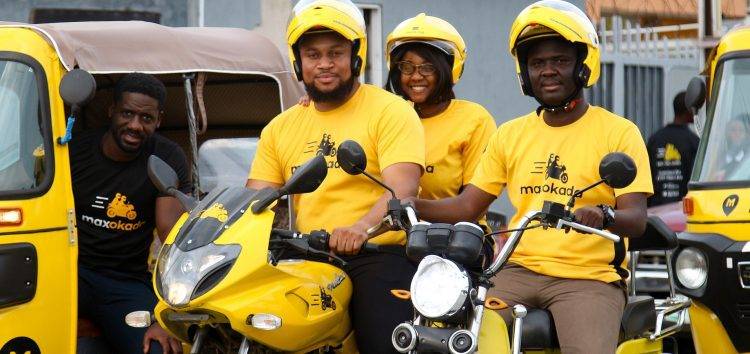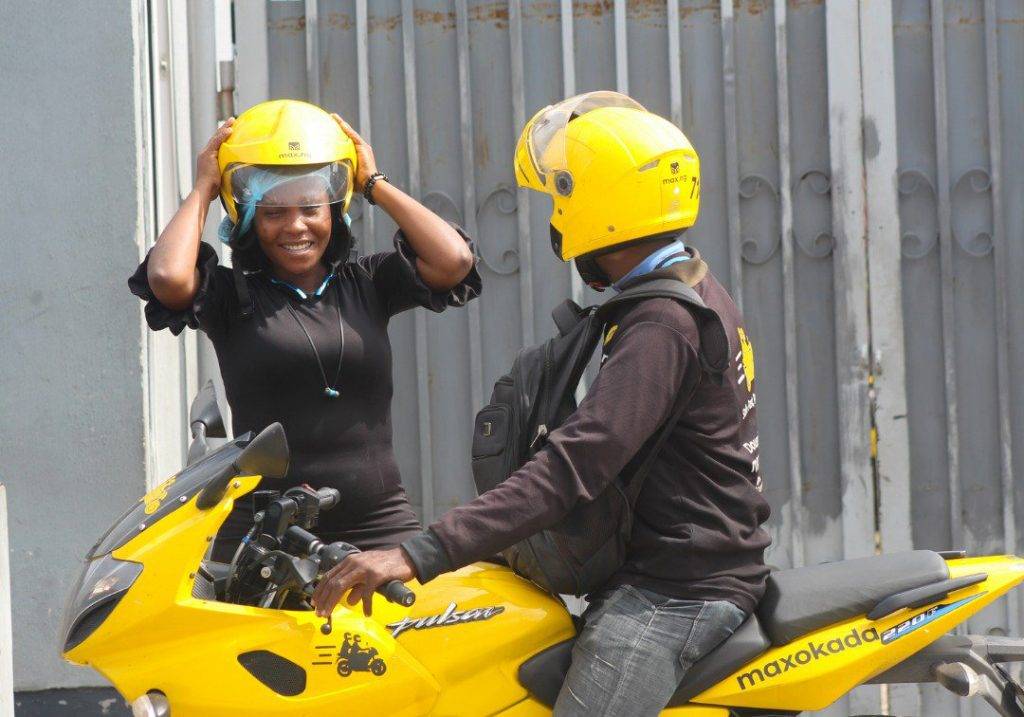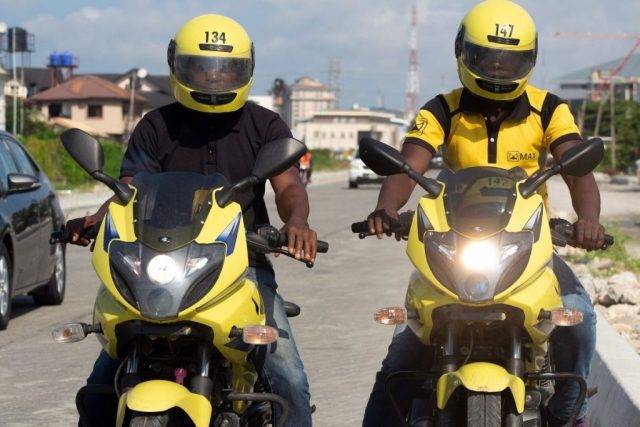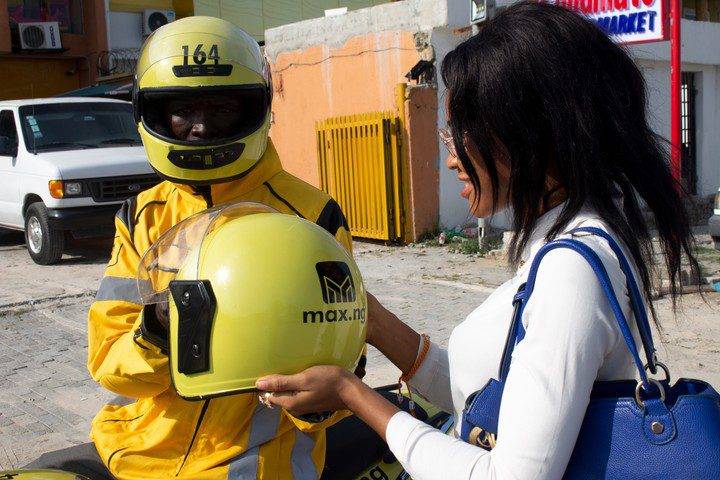MAX.ng Reveals How Gov’t Broke Its Own Laws & Promises With Recent Okada Ban Which Could Tank E-Hailing Startups

Monday, January 27, seemed destined to join the long list of drab, boring Mondays until late afternoon when a rather shocking turn of events gave everyone one more reason to call it the most-hated day of the week, at least in these parts.
That was the day the Lagos State Government, through its social media handles, announced that effective February 1, 2020, commercial motorcycles would no longer be allowed in 6 Local Government Areas (LGAs) and 15 Local Council Development Areas (LCDAs) in the state. This came after months of consultation and speculation.
Lagos State Government on Monday wielded the big stick against the menace of commercial motorcycles (Okada) and tricycles (Keke NAPEP) @jidesanwoolu @gbenga_omo #LASG #ForAGreaterLagos pic.twitter.com/pIoy6RzGjz
— The Lagos State Govt (@followlasg) January 27, 2020
In effect, the government was stopping Okada and Keke from plying major roads, bridges, and highways in key areas, including the typical hotspots for Okada/Keke transport in the state for reasons bordering on safety and security.
Leaving no one in doubt about its intentions, the State Commissioner for Transportation, Dr. Frederick Abimbola Oladeinde, was seen in a video clip that has since gone viral on social media, responding to a query on whether formalised motorcycle/tricycle hailing operators are exempted from the ban in the following manner: “all forms of motorcycles and Keke Napeps are banned…”
For People asking: “What of Opay, Gokada and the rest, are they part of this?”
Lagos State Govt says YES. All forms of Commercial Motorcycles are included.#ForAGreaterLagos @dr_oladeinde @TFayinka @gbenga_omo @Riddwane @jidesanwoolu pic.twitter.com/XyJMlsXron
— Jubril A. Gawat (@Mr_JAGs) January 27, 2020
And that can only mean one thing; the blanket directive extends the “ban” to commercial ride-hailing operators in the state. But it seems the directive is in direct violation of laws enacted by the state itself.
Nigeria’s premier e-hailing company, Metro Africa Express (MAX.ng), which pioneered bike-hailing and tricycle-hailing in the country, has revealed in its first official statement since the directive was pronounced, that the basis of the government’s decision is faulty, to say the least.
In a statement seen by WeeTracker, MAX.ng posits that its business is in compliance with every detail spelled out in the referenced extant law that was invoked to effectively outlaw the informal Okada/Keke operators and it was an injustice to adopt a one-size-fits-all position.

Source: Founders Alley/YouTube
“The government’s spokesperson relied on the Lagos State Transport Sector Reform Law 2018 as the legal backing for this decision,” the statement reads.
“The referenced law restricts motorcycles from operating on major highways in the state but however makes an exception for motorcycles with engine capacity above 200cc.
“This has always been a guideline for our operations and investments, as MAX.ng has always operated in compliance with all existing laws and regulations, including compliance with engine capacity requirements. All MAX.ng Motorcycles are 220cc engines, a 10 percent premium above the regulatory requirement.”
Essentially, the laws that were supposedly being used as legal backing when the directive was made clearly exempts MAX.ng from receiving the hard end of the stick and it seems the government is conveniently ignoring that, or perhaps the laws can be bent to suit whatever agenda is at play at any point in time.
The statement adds:
“For clarity, Section 15 of the Lagos State Transport Sector Reform (Road Traffic Regulations) states that “subject to the provision of section 46 of this law, motorcycles above 200cc are exempted from the restriction on the use of motorcycles on the State highways. Section 46 is the general provision that restricts motorcycles and tricycles from highways in the State.
“We are also fully compliant with the requirement of the law prohibiting the operation of motorcycles without rider and passenger helmets, carrying more than one passenger, comprehensive insurance etc. in addition to other safety-related violations.
MAX.ng goes on to provide evidence of its compliance, stating thus: “As proof of this, at various engagements with the government, we have often been commended for reviving the helmet culture, which had died out over the years amongst motorcycle riders. This blanket directive extending the “ban” to commercial ride-hailing operators is therefore not in accordance with the extant law, which guides us as a legal business.”

The e-hailing operator also pointed to its impeccable operational standards which place a premium on safety and security as further evidence that the government had made a boo-boo by wielding the big stick against its operations.
“In addition to being fully compliant with the relevant laws, we have also, in the course of constant engagements with the government, demonstrated that we have the infrastructure and investments to address all safety and security concerns regarding the operations of motorcycles in the state,” a part of the statement reads.
“Our motorcycles are well branded and easily identifiable, eliminating the risk of anonymous crimes. We track all motorcycles on our platform and can tell the exact location of all motorcycles in real-time. Our riders undergo a rigorous know-your-customer (KYC) process where we vet the rider’s details and that of the two guarantors they are required to provide.”
It emphasizes its safety-first approach as follows: “We have a world-class Driver Academy that trains drivers on defensive driving with a zero-tolerance policy for erring drivers who have low safety scores, disobey traffic rules or for other infractions. Our average acceptance rate of drivers is about 40 percent, meaning our recruitment system filters out at least 6 out of every 10 driver applicants we get, as not fit for our safety and security standards.”
While MAX.ng admits that the “scary” data on Okada/Keke accidents and fatalities cited by government’s spokesperson is “fairly accurate” and is actually a call for urgent redress of the industry, the company maintains that its model has, time and again, proved itself as a safe and secure alternative.
When the directive banning commercial motorcycles/tricycles from operating in certain areas was made, the State Commissioner for Information and Strategy, Gbenga Omotoso, stated that accident figures are scary.
“From 2016 to 2019, there were over 10,000 accidents recorded at the General Hospitals alone. This number excludes unreported cases and those recorded by other hospitals. The total number of deaths from reported cases is over 600 as at date,” said Omotoso.
In light of this, MAX.ng maintains that its safety record is impeccable and the authenticity of this claim is verifiable and indisputable.
As the statement says:
“MAX.ng has completed over 2 million trips with less than 100 incidents out of which less than 7 were serious, requiring a hospital visit. Till date, our fatality rate has remained at 0%. These figures are easily verifiable and have not been disputed by the government at the different engagements we have had.”
The e-hailing startup also decries the privation and hardship that are sure to trail such a totalitarian and insensitive directive, talking up its social impact metrics as something it takes great pride in.
“In terms of social impact, MAX.ng has created 2200 direct jobs for our drivers and full-time staff and 73,000 indirect jobs,” reads the statement from MAX.ng.
“We have demonstrated our ability to elevate the average monthly income of a rider on our platform to more than three times what their peers in the informal sector earn, with the additional benefit of ownership of premium quality vehicles within 12 months, and a further 40 percent increase in their earnings once they take full possession vehicles.
“This is transformational as it enables a driver to live a better life, meet basic needs and ensures a better future for their kids. Beyond our safety records, this is one impact we are most proud of, as we see the chain benefit it delivers to their dependents. In a nation with a burgeoning unemployment rate, we take this metric of our social impact very seriously.”

The startup also revels in the lives that have been impacted positively since it arrived the Nigerian scene in 2015, while highlighting the importance of its “drivers” and its role in keeping them in top condition.
“To keep them safe physically and mentally, drivers are provided with smartphones, accident insurance, two helmets, branded clothing, and first aid equipment. The drivers and their passengers are provided accident insurance and the drivers, in addition, have a functional HMO,” says MAX.ng.
“The platform gives end-customers visibility into driver ratings and performance and allows MAX to track driver location during both the pickup and the trip processes. The platform promotes confidence and a heightened sense of security through the additional data — driver name and ID, prior performance, location, etc. — available through the platform and smartphone app.”
Having invested so much time, money, and effort into creating the well-oiled machine that is MAX.ng in an effort to fix a problem that has the beating of governments past and present, anyone can see why an e-hailing startup like MAX.ng would feel hard done by the incredibly harsh directive. Especially as the government has consistently communicated its intention to regulate the motorcycle hailing industry and actively encouraged the commercial e-hailing operators to spare no expense.
“With the exceptional impact we have made and continue to make, and the commitment to work with the government, we are quite shocked that the government has chosen to paint us with the same brush as the informal operators,” reads the concluding part of the statement from MAX.ng.
“In recent past, the government has consistently represented that it intends to regulate the motorcycle hailing industry and actively encouraged the operators to invest millions of dollars in asset acquisition, technology and manpower and suddenly, and without prior consultations, proceed to place a ban which does not accord with the law.”
MAX.ng adds:
“This is essentially aimed at disenfranchising technology-based mobility startups and an open admission that the government is not ready for investment, doesn’t care about the livelihood of citizens and would instead of tackling the issues headlong, adopt a totalitarian approach.
“We have at several fora asked the government to enforce the provisions of the extant law by enforcing the engine capacity requirements amongst other requirements.”
In any case, the company assures its esteemed drivers, investors, partners, and customers that round-the-clock efforts are being made to address the situation and all lawful means would be explored to seek a redress of what it describes as an injustice.

Co-founded by Chinedu Azodoh and Adetayo Bamiduro, MAX.ng is focused on solving a persistent problem in the Nigerian transportation system and Africa as a whole using mobile technology to formalize West Africa’s fragmented and highly inefficient informal motorcycle taxi industry.
The startup claims to save commuters an estimate of 6 hours daily and 180 hours a month usually spent in traffic by providing access to safe, reliable and affordable moto-taxi transport just by the click of a button on their mobile devices. MAX.ng also provides last-mile deliveries for businesses.
The startup has raised at least USD 8.1 Mn in funding since inception while attracting a reputable array of international partners and investors including Novastar Ventures, Alitheia Capital, Breakthrough Energy Ventures, Yamaha and Mastercard.
As the government, through its policies, continues to serve up a terrible audition for the investors it hopes to attract, MAX.ng, and indeed other bike-hailing startups like Gokada and ORide, will be hoping to get prompt redress to a directive that could vapourise its entire value proposition and effectively tank its core business.